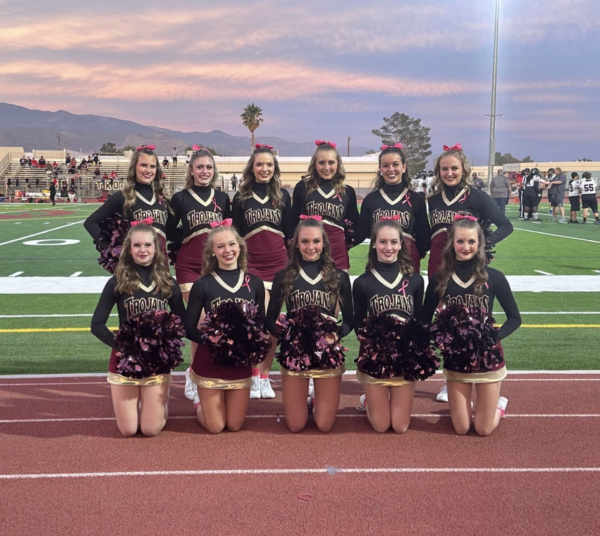Holidays Holidays, Some Unknown?
All people know of the madness called the holidays and many know about Christmas and New Years, but there are more holidays celebrated by the few that are just as important as the any other holiday.
Kwanzaa and Hanukkah are two holidays celebrated in December that some people celebrate in America but are widely celebrated in their countries of origin. These holidays have many traditions and unique foods based on their culture.
Kwanzaa is celebrated in Africa, and is a 7-day festival that runs from December 26 to the beginning of January. Kwanzaa was created by Dr. Maulana Karenga in 1966. He created Kwanzaa so that he could have Africans remember their culture. The word Kwanzaa comes from the phrase “matunda ya kwanza” which means “first fruits.” Therefore Kwanzaa is a harvest festival which, in African culture, is a time where people can come together and give thanks for their lives.
In Kwanzaa there is a kinara that holds 7 candles 3 Red, 3 Green, and 1 Black. They each represent the 7 principles of Kwanzaa: Umoja, unity, Kujichagulia, self determination, Ujima, collective work and responsibility, Ujamaa, cooperative economics, Nia, purpose, Kuumba, creativity, and Imani, faith. The Kinara’s black candle is lit first then the colors alternate red to green.

Along with the Kinara there are 7 symbols that are placed on the same table: Mkeka, the mat, Kikombe cha Umoja, the unity cup, Mazao, the crops, Kinara, the candleholder, Mishumaa saba, the seven candles, Muhindi, the corn, and Zawadi, gifts.
Kwanzaa has a feast called Kamaru. The feast begins with the Tambiko Ceremony where everyone passes and drinks a libation (tambiko) from the kikombe cha umoja (unity cup). Then the oldest person in the party recites the tamshi la tambiko (libation statement) to honor the ancestors. The elders then pour some of the drink, usually water, juice, or wine, and ask for the blessing of the four winds. The elder then pours some onto the ground hands it to the host or hostess. They take a sip, watch a drum performance, then it is time to eat.
Hanukkah is celebrated by Jewish people and is an 8-day festival that runs from December 2 to December 10. The word “Chanukkah” means dedication in Hebrew and it represents the rededication of the holy temple. In second century BCE, a small band of Jews were able to defeat Syrian Greeks and reclaim the Holy Land. When the Jews tried to light the menorah they found a one-day supply of olive oil that miraculously burned for eight days straight until new oil could be prepared.

The candelabrum in Hanukkah is the menorah, and it has 9 candles. 8 of the candles represent the 8 days the oil miraculously burned for the Jews in the Holy Temple. The 9th candle, the shamash, is used to kindle the other 8 candles. The shamash is lit first, then the first candle is lit from the flame of the shamash. Then on the next day, the first and second candles are lit and on the third day there should be 4 candles lit, including the shamash

The Hanukkah miracle involved oil, so many Hanukkah delicacies are fried in oil. The classic Hanukkah food is the potato latkes (pancakes). Usually latkes are garnished with applesauce, sour cream, or the jelly-filled sufganya (doughnut). In Hanukkah you give gelt which are gifts of money to children, or give the foil-covered chocolate gelt. I
t is customary to play Dreidel, a Hanukkah game with a four-sided top that has the 4 Hebrew letters nun, gimmel, hei, and shin. This game is typically played with a pot of coins, nuts or other items, which can be won or lost depending on which letter the top lands on.
These holidays are different than holidays that many people know, but they are very important. One thing remains the same, spending time with family and other people you know.






Xavier Lyke • Nov 7, 2019 at 9:21 PM
Never really payed attention to Kwanzaa and Hanukkah . Only knew a few minor things about them and their origin. So I like how you go into detail about the culture and food that is served within their respective holidays. Besides the few grammar mistakes I think this goes into decent detail about these other two holidays that should definitely not be ignored from a cultural standpoint.